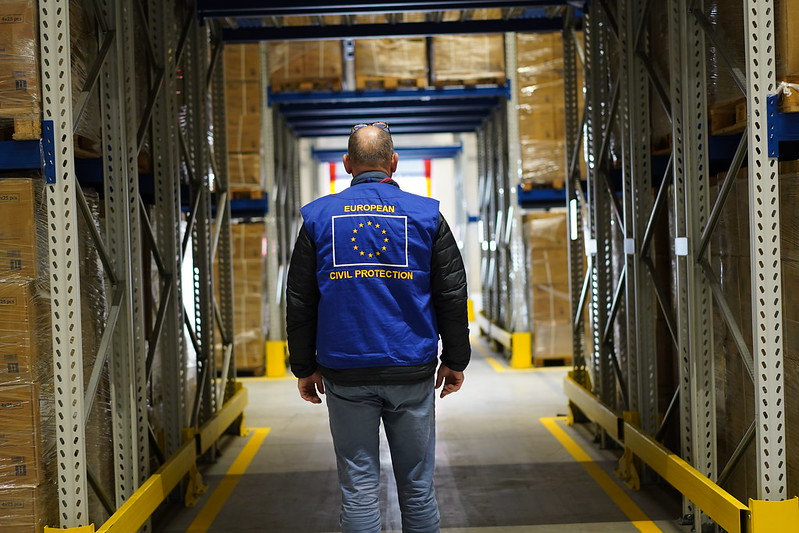The Covid-19 pandemic caught the European Commission off guard but its fast response helped to stop a bad situation from becoming catastrophically worse, avoiding the collapse of the Single Market as a result of Member States scrambling and competing against each other for medical equipment. The Commission stepped in on time by pushing for joint stockpiling and procurement of medical countermeasures, appointing a top negotiator to lead DG SANTE, and paving the way for an ambitious institutional reform, the European Health Union.
If not a true Hamiltonian moment, the decision to jointly procure vaccines conveyed a message of EU solidarity, proved to the world how successful Member States’ joint bargaining power could be, and led to highly successful (albeit late starting) vaccination campaigns. For a population of almost 450 million, the Commission secured up to 4.2 billion vaccine doses at a price 5.5 % lower on average than in the US. And of course, all of this on top of vaccine solidarity with non-EU countries.
However, a veil of secrecy covered the process and the content of vaccine contract negotiations between the Commission and pharmaceutical companies. Today, as the urgency of securing Covid-19 vaccines for the EU has waned, that lack of transparency is coming back to haunt the Commission.
Under the spotlight is the refusal to publish text messages between Ursula von der Leyen and Pfizer CEO Albert Bourla, and the lack of information about the distribution and use of public funding for pharmaceutical companies. The Commission is being accused by civil society and other EU institutions of having operated as a lone wolf without complying with sound governance rules.
To be fair, there might be good reasons underpinning this conduct. Yet if the Commission wants to maintain public trust, it needs to ensure that this remains an isolated case and that next time decisions in emergency situations will be taken with much more transparency and – some may say – integrity. But is this actually possible?
Next time, there will be no excuse for a lack of transparency
Winston Churchill once famously said that there are two things that no one wants to know how they are made: sausages and laws. What about vaccine contracts?
Few people actually care about the nitty-gritty details of vaccine procurement processes. But what is not observable is often misinterpreted, fuels disinformation, and decreases people’s trust in institutions. And, as it turns out, during a health emergency public trust is as important as securing enough vaccine doses.
Walking in the Commission’s shoes, one realises that the lack of transparency in negotiating Covid-19 vaccines was essentially due to a lack of preparedness. Higher purchase volumes are a more plausible reason behind the lower prices secured by the EU than absurd promises made to pharmaceutical companies. Yet things went fast, were unprecedented, and required rapid action – all this in an already challenging political environment.
But while unpreparedness can be a valid excuse una tantum, next time – and there will be a next time – the Commission must be better prepared and mustn’t fall into a state of panic. This is true for the joint procurement of vaccines, but not only – should EU leaders jointly procure ammunition to help Ukraine, transparency will be just as vital, and from Day One.
Preparing for the next health emergency and beyond
The key to avoiding unpreparedness is straightforward. It’s called (rather obviously) preparedness and requires during ‘peacetime’ the establishment of procedures and clear rules of engagement with suppliers (in this case, pharmaceutical companies). Our study on the lessons learnt during the pandemic for future cross-border health threats for the European Parliament’s COVI Committee proposes some clear recommendations on how to achieve this.
Ex ante guidelines would provide the strongest bulwark for ensuring good governance during a crisis. For pandemic joint procurement, a rulebook should be ready for immediate use when things are starting to heat up, clearly stating the precise conditions the EU must follow to begin public procurement contract negotiations. This rulebook would also define who would represent the EU in negotiations, what information would be disclosed to the public, and when. This would also help to ensure that joint procurement remains a fit-for-purpose instrument during crises, complementing existing tools at the national level.
Such guidelines would enable the newly-created Health Emergency Preparedness and Response Authority (HERA) to leverage its bargaining power and include more conditionality when negotiating with pharmaceutical companies. It would make it clear from the start what companies can – and should – expect from the EU. As HERA is already subject to concerns about its independence and transparency, this would be a manageable yet substantial step to increase its legitimacy and accountability to the public.
But there is more than can be done to boost the legitimacy and accountability of EU institutions. For example, the public can only exercise its right to oversight if it is given access to the results of negotiations, namely the text of the contract signed by EU authorities. The full disclosure of negotiated contracts should thus be the norm and a clear justification must be given for any redaction. This is sometimes described as ‘asking for the moon’ but for the wrong reasons: transparency principles for public contracts – such as those from the Center for Global Development – are rather simple, easy to apply, and already used by other major actors, including the US.
As pandemics are sometimes compared to wars in popular rhetoric, William Shakespeare’s most famous war-themed play Henry V summarises it well: ‘All things are ready, if our minds be so’.
The EU already possesses everything it needs to achieve the highest standards of good and open governance. It just needs to be fully ready the next time a critical emergency rears its ugly head.
To mark International Women’s Day on 8 March, this Expert Commentary is part of a week-long series to highlight the insights and expertise of some of our most talented young female researchers.
About the author


